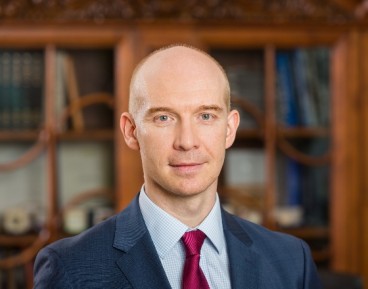How can monetary policy be made more efficient?
Kategoria: Macroeconomics
With the departure of Christie Romer as chair of the Council of Economic Advisers, various commentators are pointing their fingers at National Economic Council director Larry Summers for pushing her out. I think this is not correct. It’s rare for someone to stay in Romer’s position much longer than she has and there is every reason to believe that she was anxious to return to Berkeley and also be considered for the position of president of the Federal Reserve Bank of San Francisco.
To the extent that there is any truth in the idea that Summers was a factor in Romer’s departure, I think it was more an institutional problem than some sort of personal rivalry or whatever. The fact is that the NEC and CEA are institutional competitors within the White House and the NEC has over the years tended to snag more and more of the turf that once belonged to the CEA. One big difference that may sound trivial but is in fact critical is that the NEC director has an office in the West Wing while the CEA is over in the Old Executive Office Building. Although the physical distance is small, it makes a world of difference in terms of influence. Being in the West Wing means being in the loop continuously, while being in the OEOB means being a step behind, always playing catch-up, having less face-time with the president and other members of the senior staff and so on. Institutionally, the distance is very wide.
I have always thought that the NEC was an unnecessary organization and that Bill Clinton made a mistake establishing it. It really only worked well during the time Bob Rubin headed it and that’s because he had unique talents that subsequent directors have not had. I think Ezra Klein’s take on Summers’ failings in the position is probably correct.
In my Impostor book, I spent a couple of pages discussing the problems inherent in the nature of the NEC that I think are still relevant. Here’s some of what I wrote back in 2005:
Bill Clinton made a key change in [the policy development] process in 1993. He had campaigned on the idea that economic policy did not have sufficient stature within the White House. Too often, defense and foreign policy issues pushed aside domestic economic concerns, Clinton charged. Toward this end, he promised to create a new economic organization comparable to the National Security Council.[…]True to his word, Clinton established a new White House organization, carved out of [the Office of Policy Development], called the National Economic Council. More importantly, he persuaded New York banker Robert Rubin to come to Washington and head it up. Rubin proved to be very well suited to the task, which compensated for the innate flaws in the organization he headed.The basic problem is that economic policy is not at all comparable to defense and foreign policy in its nature. The NSC exists because there is an inherent conflict between the State Department and the Defense Department that requires mediation on a day-to-day basis. Moreover, national security issues often utilize classified information that demands special procedures, and frequently involves extremely time-sensitive problems—things that must necessarily be acted upon immediately and require the president’s personal attention.By contrast, there are no intrinsic institutional conflicts among the economic agencies that require constant mediation. The information involved is almost never classified and decisions are rarely that time sensitive. Consequently, there is simply no need for a specialized White House economic office that is structured like the NSC. Moreover, the White House has long had OMB and the Council of Economic Advisers to deal with economic issues when they arose.It is probably fair to say that most economists with an interest in public policy thought creation of the NEC was a mistake. At a minimum, it would degrade the influence of the CEA and add another layer of bureaucracy to the economic policy process. It only worked as well as it did in Clinton’s first term because of Rubin’s exceptional managerial skills and the great respect everyone had for him. But when he left to become Treasury Secretary in 1995, there was a noticeable decline in the NEC’s effectiveness.

